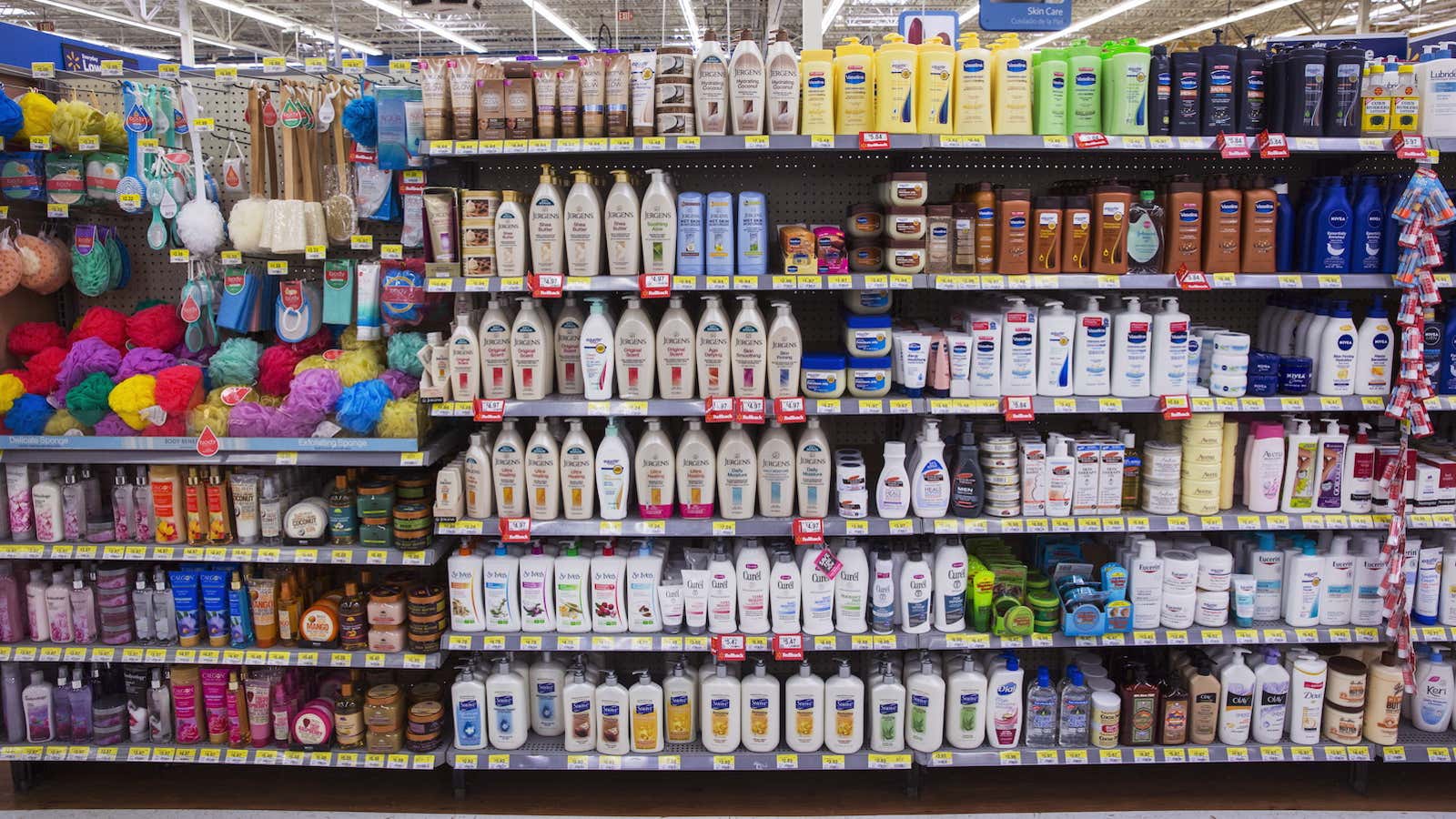The term “organic” is used broadly on shampoo, makeup, mattresses, even dry cleaning. But is your mattress as organic as your apples?
It could be. But it’s next to impossible for consumers to know for sure. And that’s an issue the $40 billion organic food industry wants the US government to tackle. The Organic Trade Association has asked the government to start regulating non-food products that boast organic marketing claims with the same rigor that’s applied to food.
Food companies using the US Department of Agriculture’s certified organic label must prove that products are at least 95% organic. But for non-food items, such as shampoos, cosmetics, and textiles—there is no such certification process.
The Federal Trade Commission has a “flexible” rule for industry, which requires marketers to have accurate and reliable science to back up their claims. But there is no formal definition for “organic” outside of food, nor is there any sort of certification. The Food and Drug Administration, which oversees cosmetic products, faces a similar situation: no definition for organic.
The food industry is worried. If non-food products can print the word organic on their packaging without adhering to a similarly strict set of rules as food companies, it could wind up tarnishing the integrity of their brands.
And the concerns that food groups are voicing shed light on a larger issue for shoppers in general. If people think the word “organic” has a uniform meaning across all products they buy in supermarkets, drug stores, and other stores, they run the risk of being duped.
“Absent that same type of guidance, there will be fraud, confusion, and other types of problems,” said Angela Jagiello, of the Organic Trade Association, during an Oct. 20 roundtable held by the USDA and Federal Trade Commission.
Jagiello wasn’t alone. Consumer watchdog groups are also interested in addressing the issue, which can lead to consumer deception, according to a joint USDA-FTC study.
“This is a rational decision that consumers are entitled to make, that they would like to be exposed to fewer chemicals,” said Laura MacCleery, of Consumer Reports. “At this point, it’s more marketing than substance.”
Groups such as the Organic Trade Association want the FTC to call for organic claims to be used only on the backs of non-food products. They want the claim to be recognized by the USDA’s program, transparent, and certified.
The FTC is considering drafting more guidance for non-food companies using the claims, but it remains outside the scope of the commission to set standards. Rather, it’s more focused on addressing claims of deception as they arise. That means it may be a while before a government agency cracks down on erroneous (and perhaps misleading) claims.
